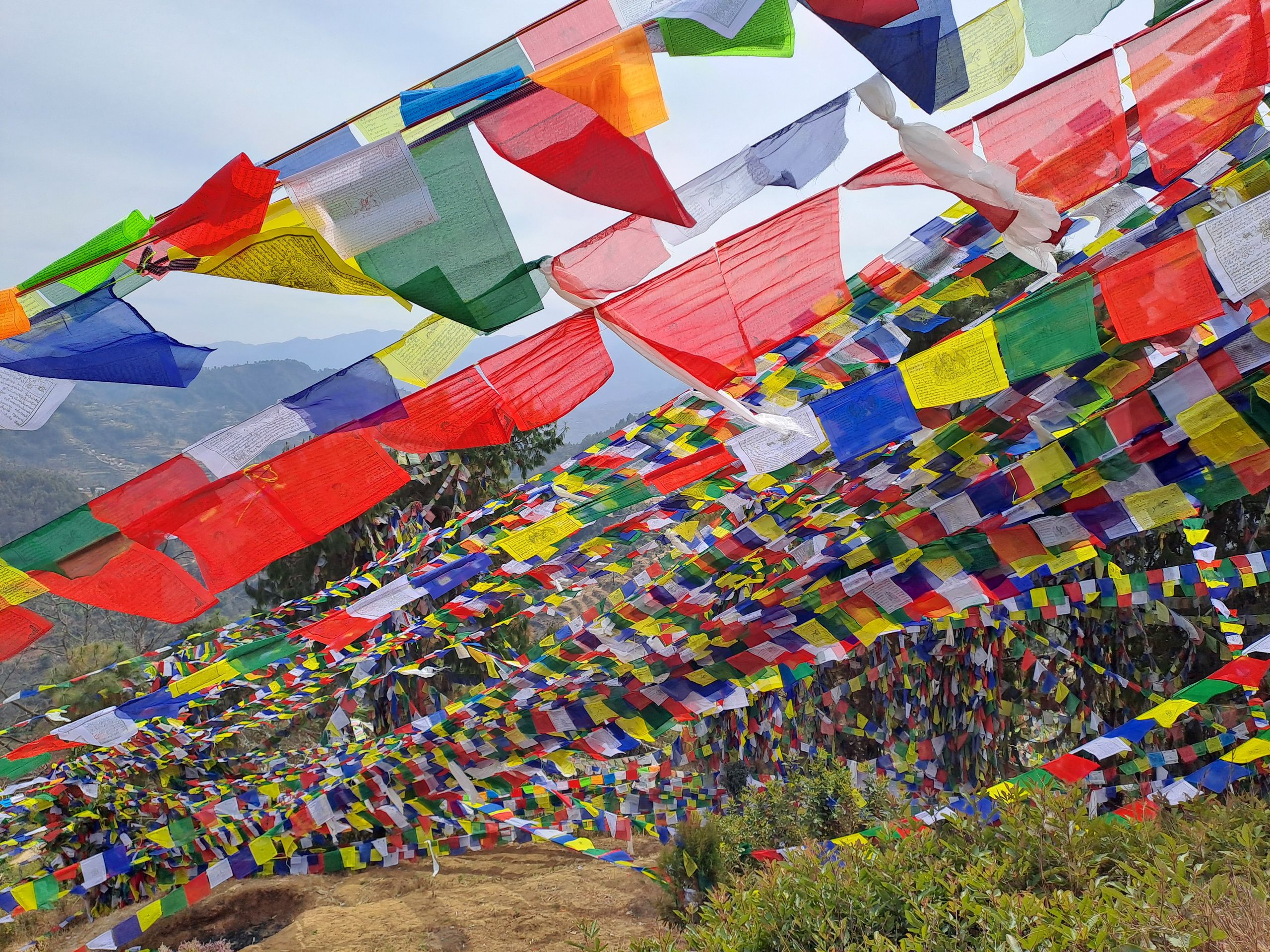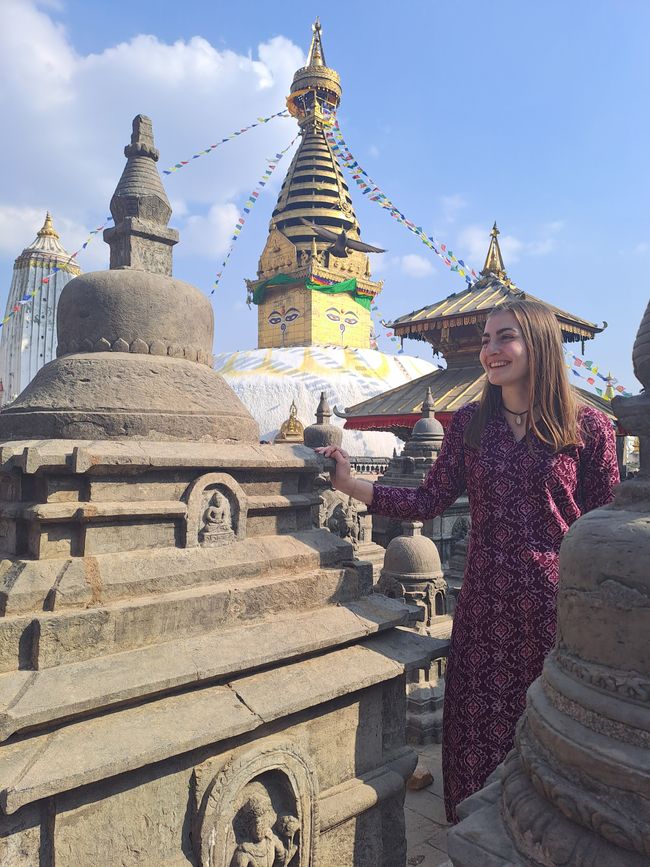About the country and its people...
ප්රකාශිතයි: 15.05.2024
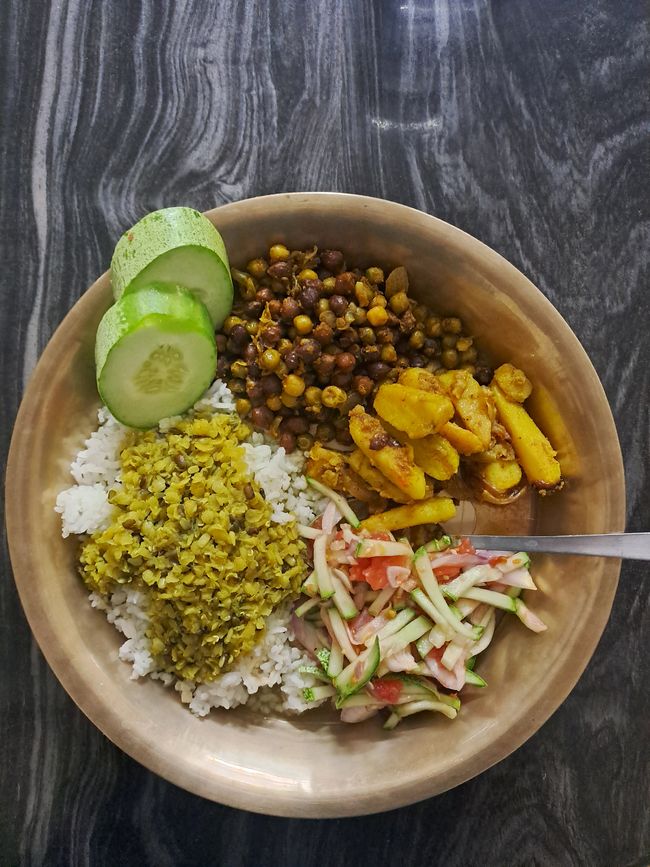
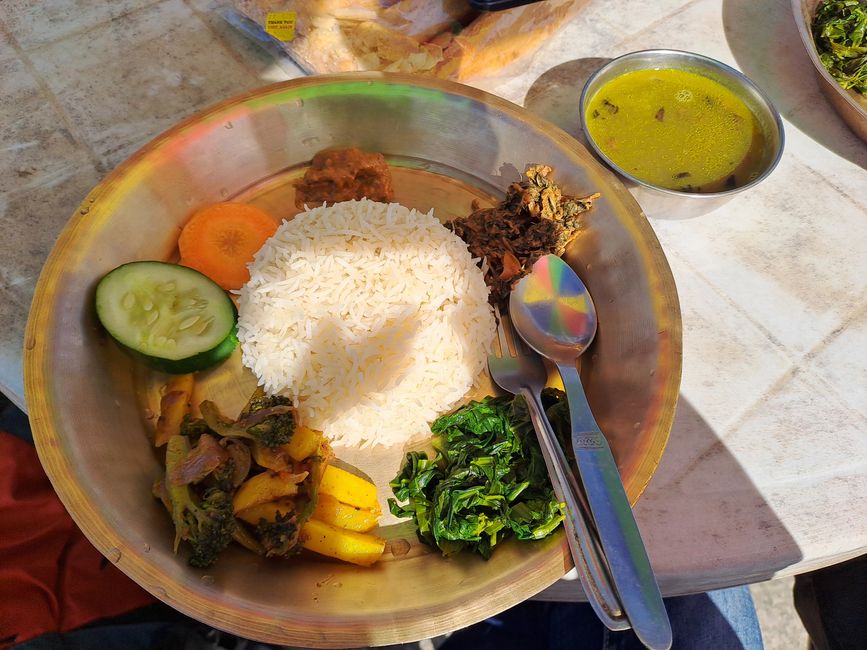
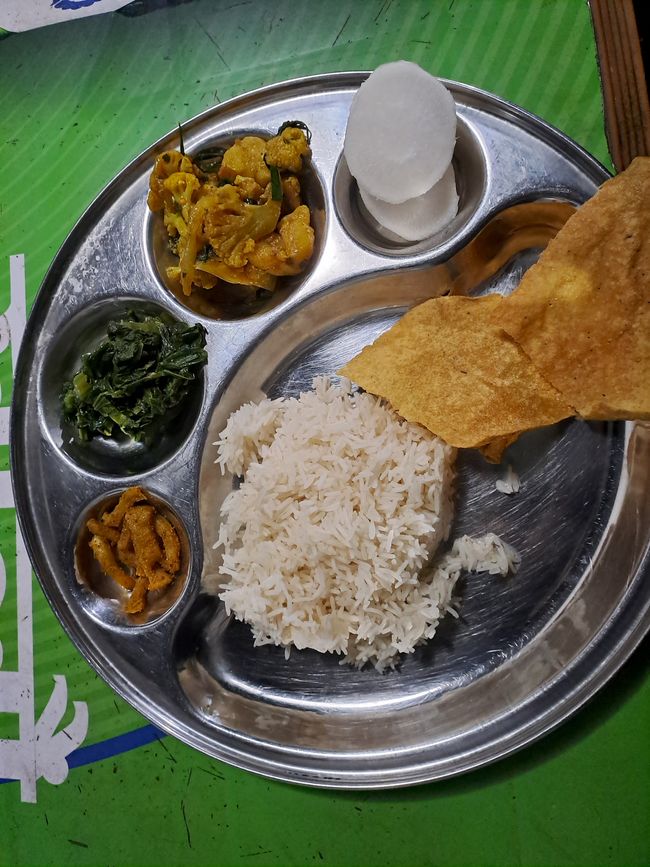
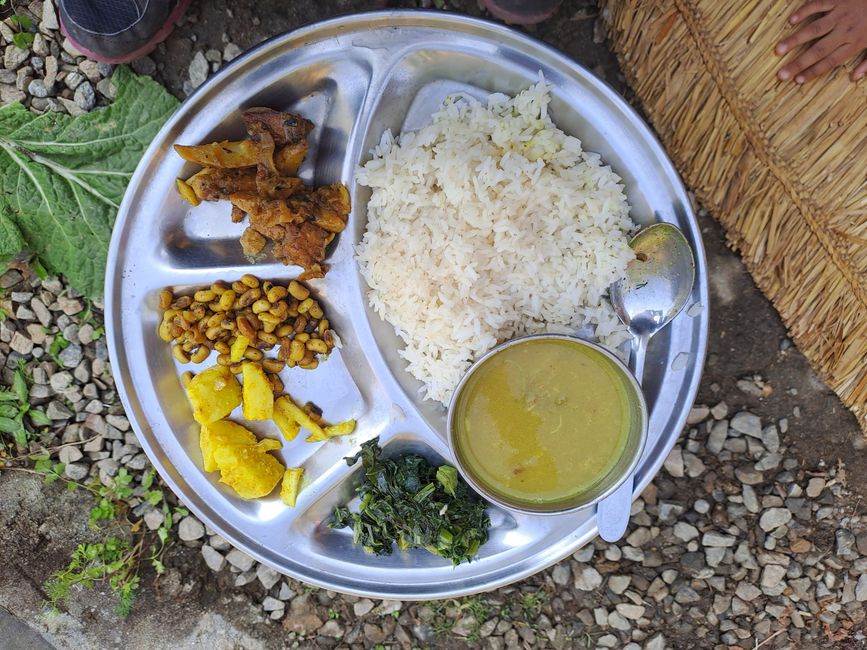
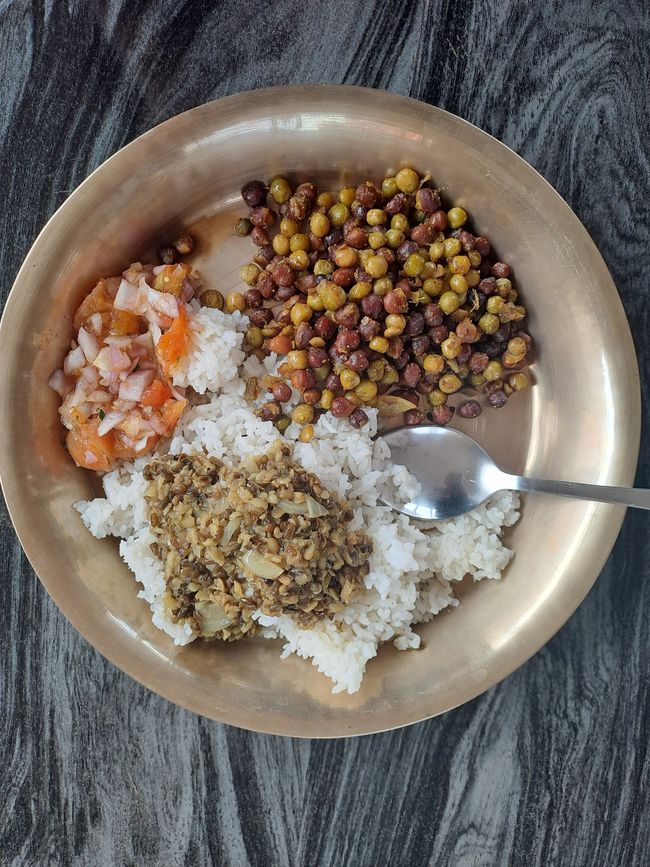
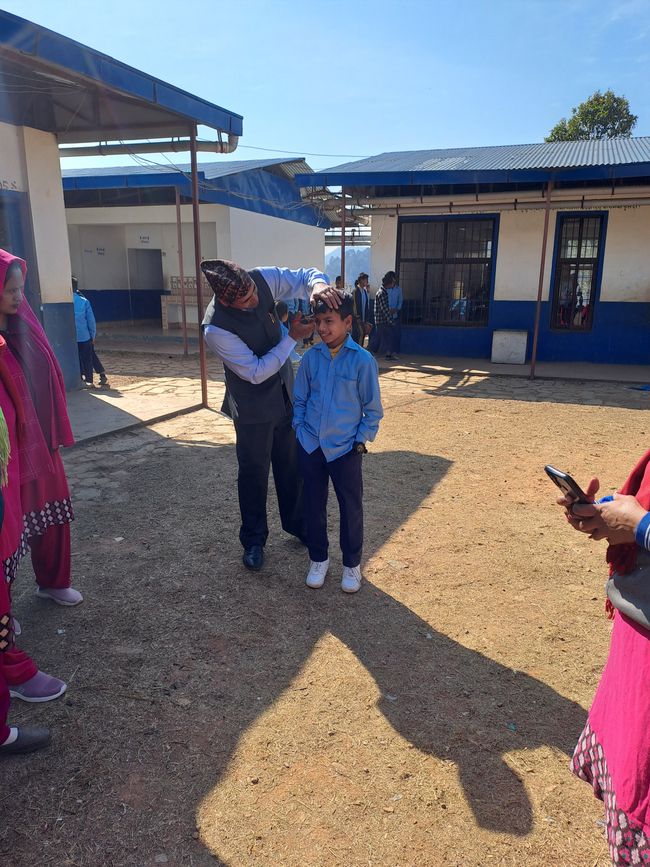
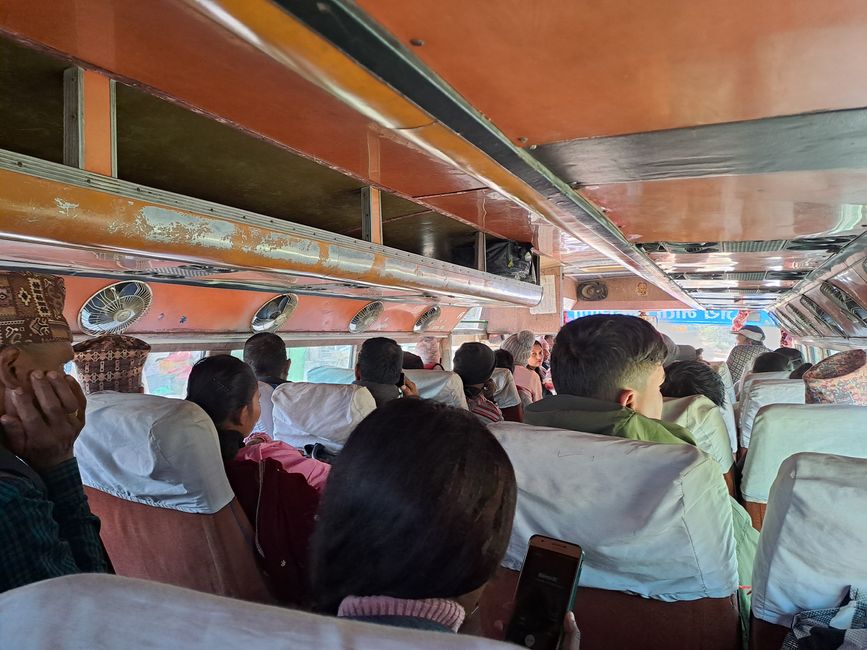
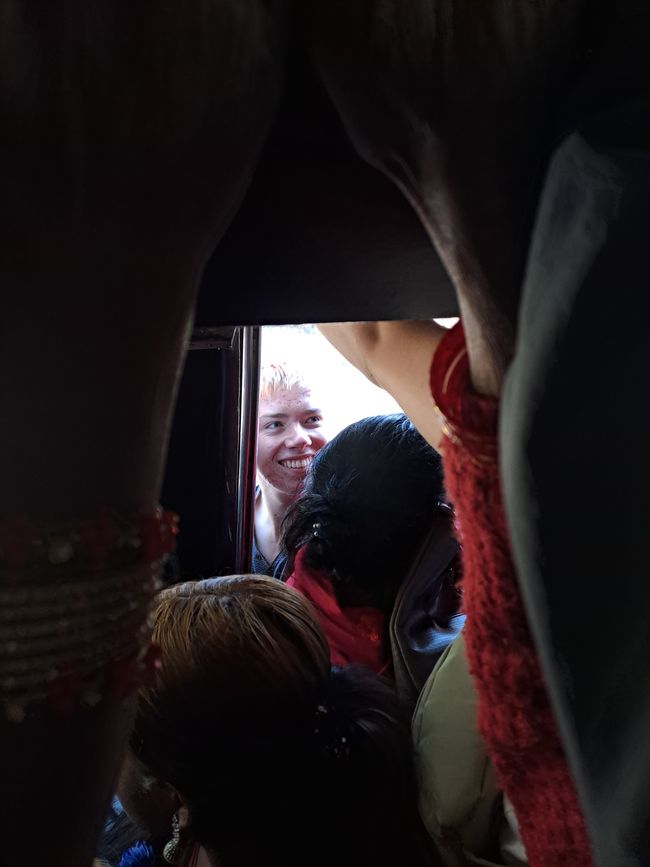
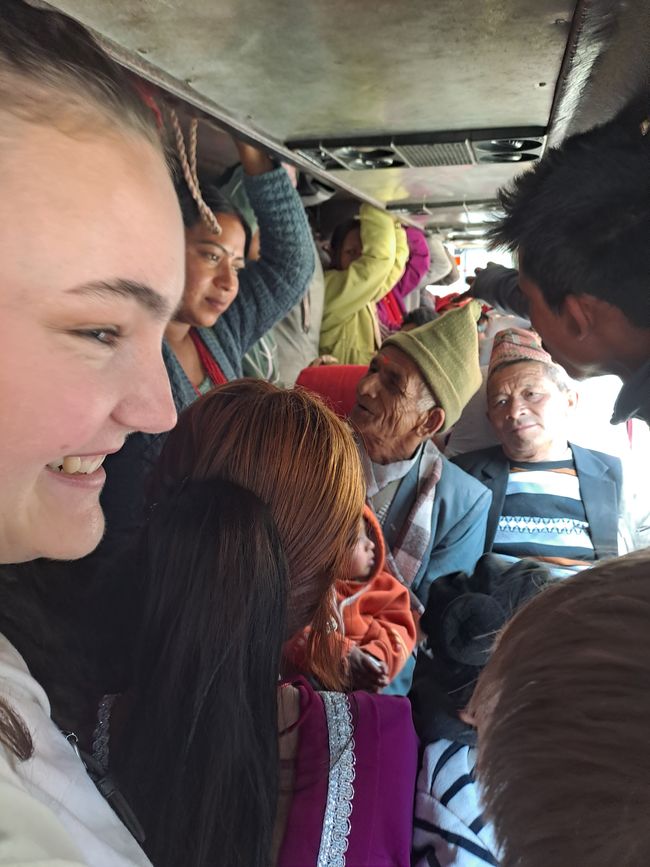
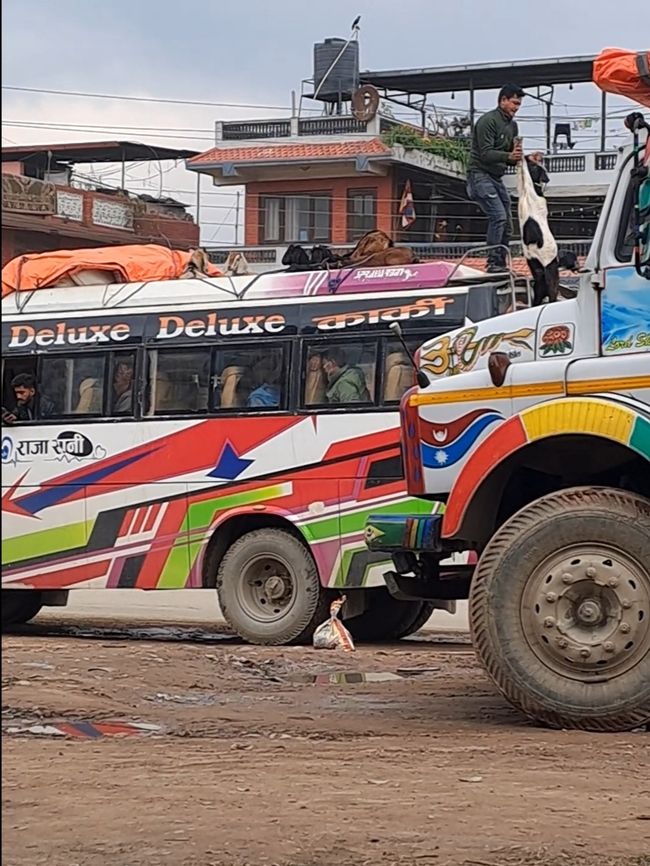
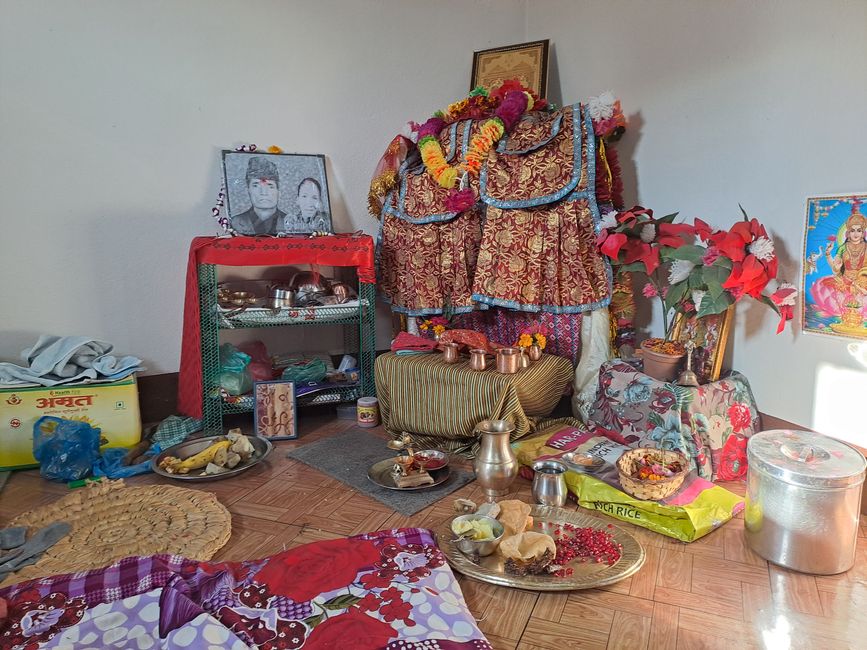
පුවත් පත්රිකාවට දායක වන්න
During my time in Nepal, especially in Kuntabesi, I kept making notes of things that caught my attention. Now that my stay is slowly coming to an end, I wanted to share these things with you:
Of course, I had already heard of the greeting "Namaste" in Germany and knew that it was used in Nepal. However, I couldn't imagine that this greeting was actually used every day and was therefore actually equivalent to a "hello". The meaning of "Namaste" is much nicer, however, as it means "I greet the divine in you". Every day on my way to school and also at school, I greet the people I meet with a "Namaste" and fold my hands in front of my chest.
A faithful companion of my time here is the Nepalese national dish Dal Bhat. It basically consists of rice (Bhat) and a lentil soup (Dal), which is poured over the rice. A vegetable curry is eaten with it. Sometimes there are also pickled vegetables, a few slices of radish, carrot and cucumber or other side dishes. At first it was very unusual for me to eat such a meal in the morning. But now I've gotten used to Dal Bhat for breakfast and dinner.
This brings me to the living situation here in Kuntabesi. Anil, the internship coordinator, and his wife are both from the village. However, they live in Bhaktapur for work reasons. They have built a house in Kuntabesi for themselves and for the interns from the German universities. Every now and then they come by for a few days. Most of the time, however, the interns live alone in this house. After I arrived, I lived there for a month with a high school graduate. Then four other German students came during the semester break, so our house was full with six interns. Our internships took place at different schools in the village. When I returned from my trip around the country, I was alone for a short time until another German student came to stay with me for a month. I am now spending my last two weeks alone again before the house stands empty for a while.
We interns are cooked Dal Bhat in the morning and in the evening. At first, I have to admit, it was very strange for me to have an external person cook for me. The idea behind it, however, is that the German interns can also create jobs here in the village. I have now grown very fond of Govinda, the man who cooks for us every day, and his son, who often comes with me in the evenings and plays Uno, Ludo or similar with me.
In Nepal, there are many agencies that work in Arab countries. Govinda, for example, has already left his family for three years and once for two years to work in Saudi Arabia and Dubai. Another friend of mine worked in Qatar for a few years. There they worked in supermarkets and clothing stores for little money and under poor working conditions. It makes me very sad that these exploitative agencies are still successful because people have no other options.
In general, I quickly noticed that practically everyone I meet here has relatives abroad. There are also special programs that prepare young people for studying abroad. But once you finally make it abroad, studying there is no picnic. At a wedding, I met someone who currently works in Australia and had previously studied there. During his studies, he worked three jobs at the same time and only slept two to three hours a night to finance his studies. He has also had to endure a lot of hostility towards foreigners and therefore no longer dares to go out on the street alone at night. Despite all this, for him and many other young people who have made it abroad, this is better than staying in Nepal.
The key to studying abroad is a good education. Of course, not everyone can afford this. As is the case everywhere, it is even more important here that parents are interested in and committed to their children's education. When I was recently teaching a substitute class in the third grade, I immediately noticed that there was a teenager of around 15 sitting among the children. Even during my lesson, I noticed that he was far behind the level of knowledge of the other third graders. When I later asked the head teacher about this boy, he told me that the boy had not been to school for several years. However, since he cannot keep up with his peers in terms of performance, he was placed in the third grade when he returned to school. It is not unusual, however, to see younger children sitting next to their older siblings in the higher grades.
Every Sunday at the start of the new week, all pupils are checked to see if they have washed their hair, if the boys' hair is short enough, and if they are wearing shoes. If this is not the case, these children are punished in front of everyone else. A few times I have seen a teacher cut the boys' hair off with scissors when it is too long. I also regularly watch the teachers sewing missing buttons back onto some of the children's school uniforms. Every Sunday, each of the girls is given an iron tablet at school. Incidentally, their hair always has red, yellow, blue, or green bows on its two pigtails. The color is decided for each girl at the start of the school year, and the class is divided into four different small groups.
When I first started my time here at school or in my neighborhood, when I asked people whether they were friends or cousins, I always got the answer that they were siblings. That confused me a lot at first. But I quickly found out that this is not really a family relationship. Here in Nepal, people are named and addressed by the relationship they might have to you, for example brother, sister, uncle, aunt, grandmother or grandfather. So they look to see which of these family categories the person fits into most in terms of age. That is how the person is addressed (and not by name). For example, when I walk through the village, even children I don't know call me "Didi", which means "older sister."
The way of agreeing or saying "okay" non-verbally here in Nepal also confused me at first. This is not done with a nod as we know it, but with a tilt of the head from left to right. The face does not move in any way. The first few times I received a tilt of the head like this, I was very unsettled because I interpreted it as a "no".
In connection with the cultural differences, I would also like to tell you about the bus rides. Firstly, there is no bus timetable. You simply stand on the street and wait for the next bus. Secondly, the motto here is that no matter how full the bus is, everyone who wants to can fit in. People also move to the roof of the bus or hang out of the door or sit in the open windows. This cozy ride is always accompanied by loud Nepalese music. When there aren't people on the roof of the bus, I have also seen goats being transported on the roof. I don't even want to start talking about the traffic or the roads the bus travels on...
The bells that I hear in the neighborhood in the mornings and evenings are less loud than the music on the bus. Every family has a small altar at home where they pray twice a day. To do this, they first ring a bell. They also light incense sticks.
පුවත් පත්රිකාවට දායක වන්න
පිළිතුර
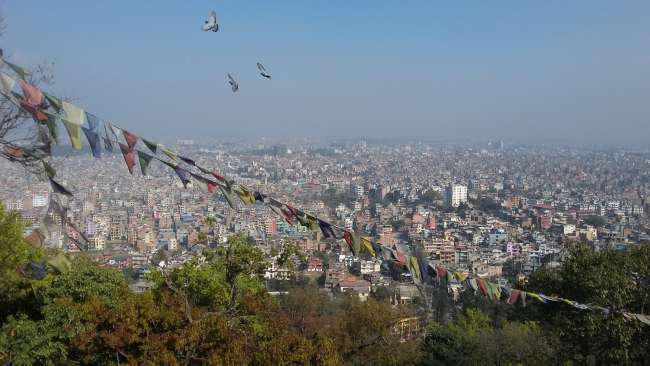
සංචාරක වාර්තා නේපාලය
